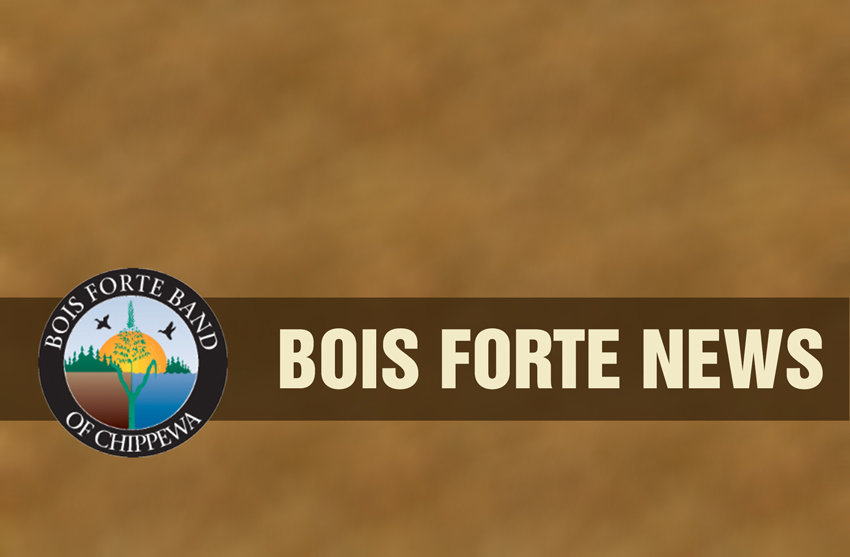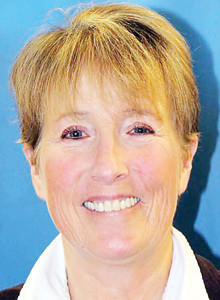Support the Timberjay by making a donation.
COVID-19 changes focus of State of the Band message
NETT LAKE— The impact of the coronavirus pandemic on the annual Bois Forte State of the Band activities was profound and pervasive, beginning with the abandonment of festivities at Fortune Bay …
This item is available in full to subscribers.
Attention subscribers
To continue reading, you will need to either log in to your subscriber account, below, or purchase a new subscription.
Please log in to continue |
COVID-19 changes focus of State of the Band message
NETT LAKE— The impact of the coronavirus pandemic on the annual Bois Forte State of the Band activities was profound and pervasive, beginning with the abandonment of festivities at Fortune Bay Resort Casino in favor of a COVID-conscious virtual presentation livestreamed on the tribe’s YouTube channel.
Tribal Chairwoman Cathy Chavers’ State of the Band address focused less on specific programmatic initiatives and more on the ways in which the coronavirus pandemic has shaped the lives and practices of tribal members, and how they collectively possess the strength to endure and move forward.
“Our normal world, our normal way of doing things, even simple things such as just visiting, going to basketball games, going to school, to work, hugging, meetings, going to a restaurant, everything came to an abrupt halt,” Chavers said. “Our normal way of implementing programs and services came to an end as they used to be delivered to everyone in our communities and even our band members off the reservation.”
Chavers highlighted many of the challenges imposed by the pandemic, including concern for the tribe’s elders. She asked viewers to observe a moment of silence for band members who have died and those who have had to suffer through COVID-19 largely isolated and alone.
But Chavers also struck a tone of assertive encouragement.
“Native American people have always survived,” she said. “We are strong and resilient and have been for many, many years, hundreds of years. We will do everything possible to ensure that once we get more vaccine that all families and band members who want the vaccine will be able to get it. We must stay positive and help each other out and be patient and eventually hope that things will get back to a new normal, whatever that may be. It sure as heck will be better than what we’re doing now.”
Another theme running through her speech was a commitment to address longstanding issues of tribal government operations, acknowledging that there have been many shortcomings and criticisms from band members.
“We are more accountable and transparent than in the past – we’ve had the opportunity to do that through social media and upgrading technology,” Chavers said. “We have made the Bois Forte reservations stronger with our sovereignty in all areas of government, but as always, there’s still room to improve. One major change that we feel is needed, and this will be an ongoing change, is not quite visible yet to our band members. It is the need to change our old ways of conducting business when most things go the same way all the time and nothing changes, and we become very complacent in our jobs. This is what is happening within the tribal government programs. We continue to have the same problems year after year after year with no resolve. We’re using band-aids rather than fixing the problem. We want to change that in the years to come. It’s going to take a step-by-step process and it may be slow, but we ask that you be patient.”
Chavers highlighted community meetings held to get input about C-Store operating problems and the tribe’s sex offender program and registry, saying she wants to gather still more input so that changes will be responsive to the needs and desires of the community.
Heightened public awareness of systemic racism in the wake of the murder of George Floyd and subsequent civil unrest was another issue Chavers tackled.
“These events have brought (forward) the racial inequities that not only affect Black lives, but affect all lives, including tribal lives, Native lives. We know as a people that we are extremely underfunded in every aspect under our treaty agreements with the federal government. We (are) highest in the nation with health disparities, especially in our area – highest rates of diabetes, highest rates of cancer, highest rates of alcoholism, highest rates of incarcerated men and women in the state. We have the numbers and the facts, but we don’t have the funding. So, with that, we’re hoping that in 2021 it will be a better year for natives.”
Tribal council members also spoke, and a new wrinkle this year was the inclusion of reports by tribal government department heads, something that stretched out the video presentation to two-and-a-half hours.
Chief Financial Officer Kim Greiner provided the greatest insight into the impact of COVID-19 on the tribe by going line-by-line through 44 separate grants, tax credits, forgivable loans, and philanthropic donations totaling $17.9 million the band had received and the many diverse ways in which it was spent. She also highlighted numerous other activities and volunteer efforts that don’t show up on a financial ledger.
Noticeable by its absence was any information about the financial toll the COVID closures and restrictions have had on the financial performance of Fortune Bay Resort Casino. While landmark dates and activities were noted, no accompanying data was given about their monetary impacts.
Chavers concluded her address with a call for unity in the face of continued adversity.
“Our state of the band is strong,” she declared. “We are going to be strong, we’re resilient. We will get through this together. But we must do it all together.”







